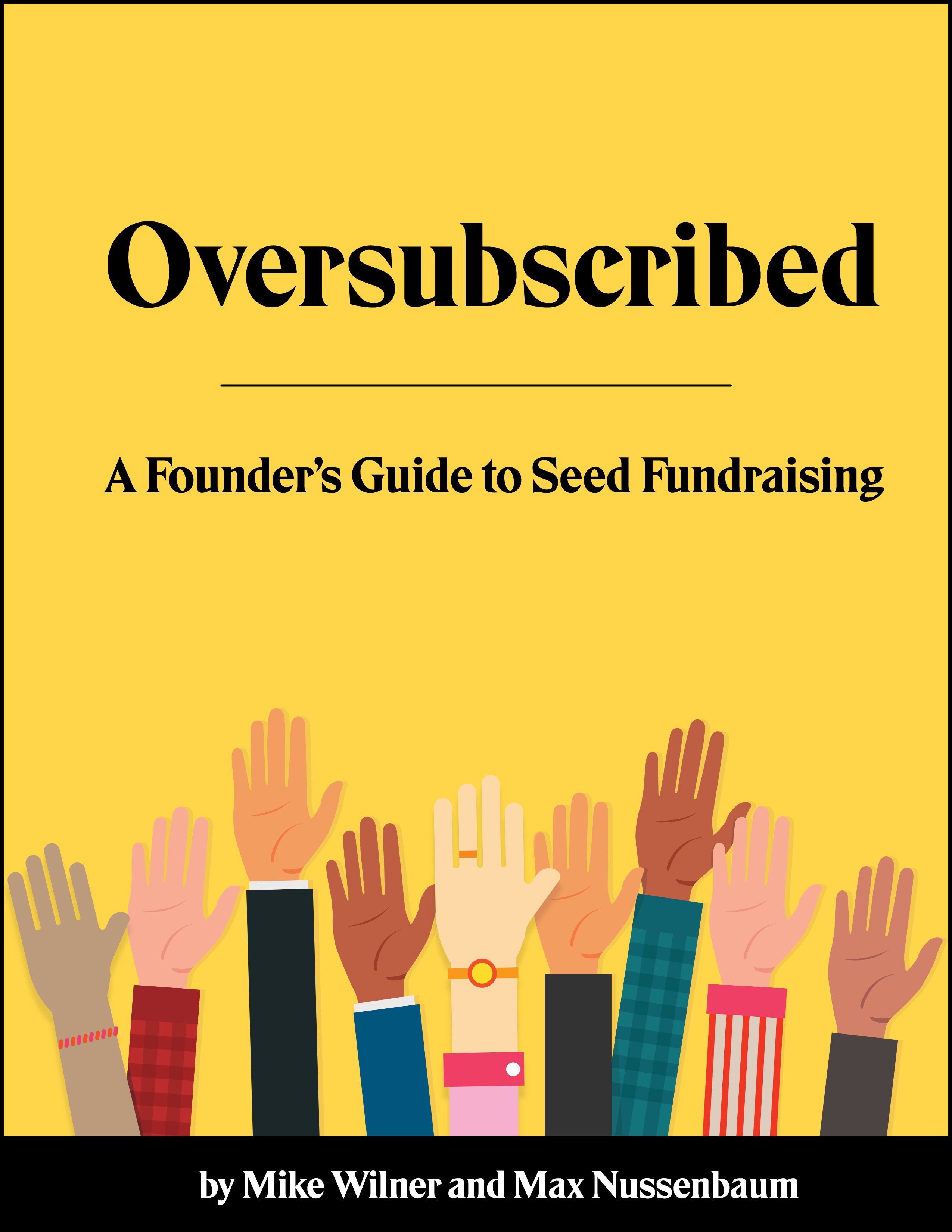Chat fundraising with us in the first-ever Oversubscribed Office Hours (Oversubscribed Weekly #21)
April 18, 2019Max here. We’re running a new experiment next week that we’re pretty excited about: the first-ever Oversubscribed Office Hours. Next Tuesday (4/23), from 10–11 AM EST, Mike and I will be hosting public office hours over Google Hangout to answer any questions you have about fundraising.
Sign up for a 10-minute slot here, and feel free to join the Google Hangoutfrom 10–11 on Tuesday to watch. (Sometimes watching other founders’ office hours can be just as helpful as having your own!)
We’ll also record these and share the most relevant pieces with the Oversubscribed community going forward, so don’t worry if you can’t make it on Tuesday.
And now, some tweets and articles worth your time.
Taking money from Series A investors at seed.
1/ Ok, this might ruffle some feathers, but here are some thoughts on taking money from next round's investors now (e.g. taking Series A investor money at seed, or seed investor money at pre-seed).
— Leo Polovets (@lpolovets) April 6, 2019
TL;DR the cons usually outweigh the pros.
I really enjoyed this tweetstorm from Susa Ventures partner Leo Polovets. Obviously, as a partner at a seed-stage firm, Leo isn’t exactly an unbiased source here (something he acknowledges in the series). But the downsides he points out—signaling risk in future rounds; investors not spending as much time with you—are very real.
I’m linking to this piece of advice even though I didn’t follow it when raising Castle’s seed round, which was led by Khosla Ventures. But we were in a unique situation: the partner on the deal, David Weiden, was particularly passionate about residential real estate, and we felt confident he’d spend more time with us than with the average seed investment, so we decided the benefit of his expertise (and of Khosla’s name) was worth the signaling risk.
That signaling risk is definitely real: when we went to raise our next round, almost every prospective investor asked us what Khosla was doing. While it no doubt would’ve looked better to have them leading the round, we were able to get past the fact that they weren’t because they were a) putting more money in despite not leading and b) still visibly committed to the company and talking to other prospective investors on our behalf behind the scenes, etc.
As Oversubscribed readers will know, we didn’t end up raising that Series A, so you might want to take this advice with a grain of salt. But I’m pretty confident the signaling risk from Khosla wasn’t the issue.
TL;DR: The cons of taking Series A funds’ money at seed usually outweigh the pros, but every situation is differently. Your results may vary.
Rippling’s deckless Series A.

HR & IT management software company Rippling has been in the news a lot lately for raising their Series A using an investor memo instead of a deck.
Rippling’s post has stirred up some controversy, though not nearly as much controversy as founder Parker Conrad’s last company, Zenefits, which you may remember from the time they were caught using homegrown software to allow their insurance agents to cheat on their licensing courses and fined $1mm by the SEC for misleading investors about the scandal.
Oh, and they also managed to create a company culture that was so toxic and hard-partying that the new CEO had to send a companywide memo formally admonishing employees not to have sex with each other in the stairwells.
(If you were wondering why I chose that photo of stairs earlier, now you know.)
So Rippling, it’s safe to say, is not your average company, and we definitely do not recommend following their approach to fundraising. For the foreseeable future, decks are the way to go. Still, I’d recommend reading their blog post for curiosity’s sake. It is kind of odd that a VC will pitch their firm’s members on a company using an investment memo, but the company will pitch the VC using a deck.
See you next week—and at office hours.
—Max (& Mike)

